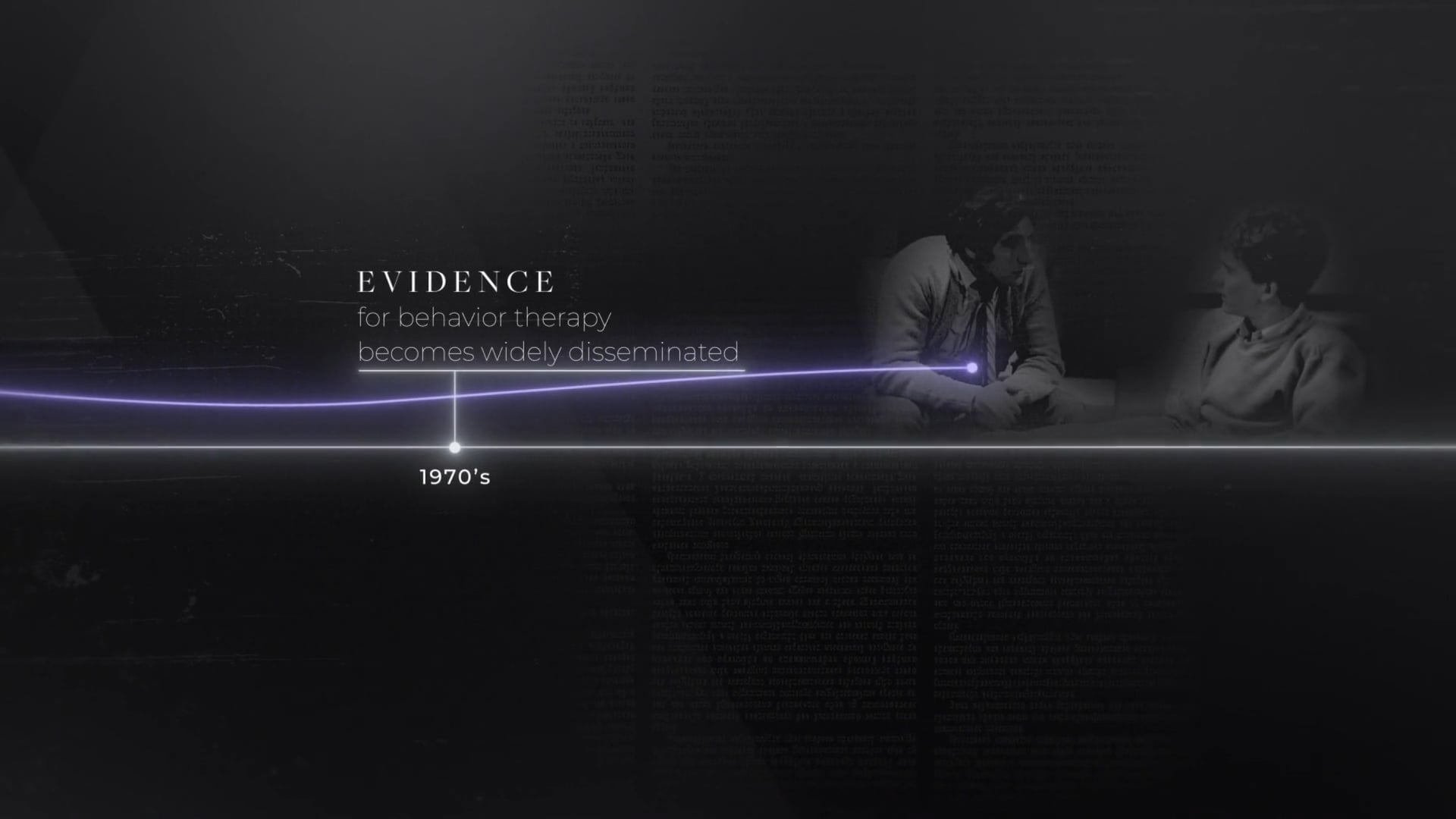
Origins of Behavior Therapy
My career began over fifty years ago when I was, in graduate school, in the mid 1960s. The state of affairs was very different in terms of how we thought about mental disorders, psychological disorders, and how we treated them. There were these very global concepts, like neurosis. That encompassed everything that wasn't easily classified as a psychotic disorder. The treatment at the time was a long term, usually, least psychoanalytically, orientated psychotherapy.
I worked with a psychologist at the time who had a very, very different approach. And this therapist whose name was Joseph Katella, and he introduced me to a very distinguished South African psychiatrist named Joseph Wolpe, who turned out to be the father of behavior therapy, be along with some Brits like Hans Isaac. But Wolpe was a clinician who would become disillusioned with long term psychoanalytic tenets of, Freud as some people were in those days. And he said, let's do something different. And he began looking at some of these principles.
He was interested in pavlovian conditioning, and he began to, experiment with brief treatments for phobia that would perhaps undo this strong fear response to some situation that inherently was nothing to be afraid of, which defines hypobia. He called his treatment Systematic Desensitization. And he would have patients relax in front of it. It was a dog that might be a picture of a dog. And looking at a dog, you know, in the next room and then gradually, gradually, you know, the person would be able to, touch the dog. Well, this was revolutionary. People thought he was nuts. He was a real iconoclast, in those days.
At the same time in Boston, the famous psychologist B. F. Skinner working pretty much strictly in the animal laboratories was developing a new concept called Operant Conditioning. It would simply say, you don't need to worry too much about the cues eliciting your response. If you just reinforce the behavior repeatedly, and that's what happens in the real world. Behavior gets selectively rewarded or reinforced and therefore behavior gets built.
How do you bring together the operant conditioning on the one hand and classical conditioning in the other. Well, that was a boon of contention. Through the 1970s. And again, like any scientific organization, there were battles and debates and fights, but that came together as the research proceeded. You know, those things began to be integrated. So initially, I was the odd man out. You know, as one of a handful of behavior therapists. And then by the late 70s, the tide began to turn, the information began getting out from the evidence. And by the 80s, much of the abuse we took In the 70s, we were brain washers.
We were automatons. We were dehumanizing people, you know, those kinds of attacks melted away.